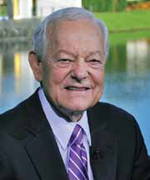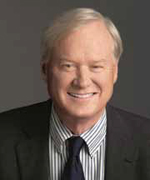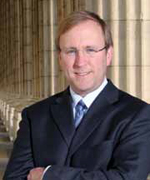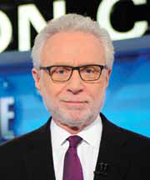Election Night 2012: Take a Breath, Wait for the Votes and Don't Eat Anything Spicy

The smarter way to stay on top of broadcasting and cable industry. Sign up below
You are now subscribed
Your newsletter sign-up was successful
RELATED: All Politics Is Local
In Election Tech, the Battleground Goes Digital
Setting a New Political Stage
If there's a certainty about Election Day, it is that no two are ever alike. And if the razor-thin polling margins are any indication, TV news anchors and correspondents are in for a long night on Nov. 6. Politicos expect the race for president to come down to Florida, Ohio and Virginia, and they aren't counting out the possibility of another recount, like in the contested 2000 election between George W. Bush and Al Gore. Making the 2012 election even more unpredictable is last week's Hurricane Sandy, which crippled many strategic states along the Eastern Seaboard. As CBS News' Bob Schieffer put it, "This is an election that's been very unusual from the beginning, and now you've got this hurricane put on top of everything else. There's just no way to know what the impact of this hurricane is going to be." With that unpredictability in mind, B&C asked veteran TV journalists to share their advice of what to do and what not to do on politics' biggest night, and what they have learned from past experience.
Jake Tapper, senior White House correspondent, ABC News
"This is my fourth presidential election, so the best lesson is from 2000: Wait for the polls to close and all the info to come in before calling a state. Right is better than first. Also: Dress warm. Don't eat anything spicy. Psyche yourself up for a long night , or even that the full results might not be known before you go to bed-if you go to bed."
Bob Schieffer, chief Washington correspondent and anchor, Face the Nation, CBS News

"On Election Night, you want to be very, very careful of your facts. You never want to state something until you are pretty sure that you know what you're talking about. That's the overall guideline. In 2000, which was the most hectic thing that I've ever been involved in, we called three different winners that time. That's the only time in all the elections that I've covered that we actually got it wrong, and when we did, not for very long...[so] question everything."
Chris Matthews, host, Hardball, MSNBC

"The best broadcasts on Election Night combine enormous numbers of results in all the congressional and gubernatorial races and the greatest moments of pathos. I will always remember the great concession speeches, especially Adlai Stevenson's: ‘I'm too old to cry, but it hurts too much to laugh.'"
The smarter way to stay on top of broadcasting and cable industry. Sign up below

Jonathan Karl, senior political correspondent, ABC News
"I don't have a particular do or don't for Election Night, but one of the most consistent rules I have found on Election Nights big and small is this: The campaign to complain first and loudest about irregularities is almost always the campaign that ultimately loses."
Wolf Blitzer, lead political anchor and anchor, The Situation Room, CNN

"The most important thing is when you see the exit poll results that are coming in during the course of the day...especially in the key battleground states...if it's close, take a breath and let the votes actually start coming in and don't think that it's over. Because sometimes you're going to be pretty surprised. I remember 2004, I was anchoring our coverage. After the first or second wave, it looked like John Kerry was doing really well and a lot of people were already assuming he was going to win. And I didn't necessarily think he was going to win and I said let's see what happens. And of course the votes start coming in, the Electoral College count goes on and on and on and by 4 or 5 in the morning we still didn't know for sure... And in the end, Kerry ended up losing Ohio and President Bush was reelected. A lot of people, when those first exit polls started coming in and it's all relatively confidential, but they just assumed that Kerry was going to win, Bush was going to lose-that didn't happen. So my advice is don't rely so much on the exit polls. Wait until the actual votes start coming out and then you'll have a much better sense of what's going on."
